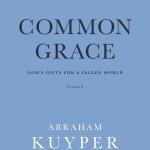Continuing to read through the church fathers, volume 13 of the first series of the Nicene and Post Nicene Fathers, this is yet another excellent set of sermons by John Chrysostom. While, like many of the other patristics, his exegetical tools aren’t what they should be (or at least, they’re not what exegetical tools would become 1200 years later, so maybe we should be generous), and he’s quick to blame wealth for a host of evils. But he’s still solid, convicting, and encouraging in turn. This should be on your to-read list (after finishing Augustine, of course), so that you can read gems like this written about Philippians 3:12:
“For the disease was heavy and the fever excessive. And we lay not upon a bed, but upon wickedness itself, cast away in crime, as on a dunghill, full of sores, and evil odors, squalid, wasting away, more like ghosts than men. Evil spirits encompassed us about, the Prince of this world deriding and assaulting us; the Only-Begotten Son of God came, sent forth the rays of His Presence, and straightway dispelled the darkness. The King, who is on His Father’s throne, came to us, having left His Father’s throne. And when I say having left, think not of any removal, for He filleth the heavens and the earth, but I speak of the economy; He came to an enemy, who hated Him, who turned himself away… He saw us in great guilt, he did not reject us; was not wroth, turned not away, hated us not, for He was a Master, and could not hate His own creation. But what does he do? as a most excellent physician, He prepareth medicines of great price, and Himself tastes them first. For He Himself first followed after virtue, and thus gave it to us.”
Chrysostom also encourages us to exercise self-restraint in the pursuit of holy living for the Lord:
“Thou has received a belly, that thou mayest feed, not distend it, that thou mayest have the mastery over it, not have it as mistress over thee: that it may minister to thee for the nourishment of the other parts, not that thou mayest minister to it, not that thou mayest exceed limits. The sea, when it passes its bounds, doth not work so many evils as the belly doth to our body, together with our soul. The former overfloweth all the earth, the latter all the body. Put moderation for a boundary to it, as God hath put the sand of the sea.”
Again, this is excellent stuff and you should read it.
Dr. Coyle Neal is co-host of the City of Man Podcast an Amazon Associate (which is linked in this blog), and an Associate Professor of Political Science at Southwest Baptist University in Bolivar, MO












